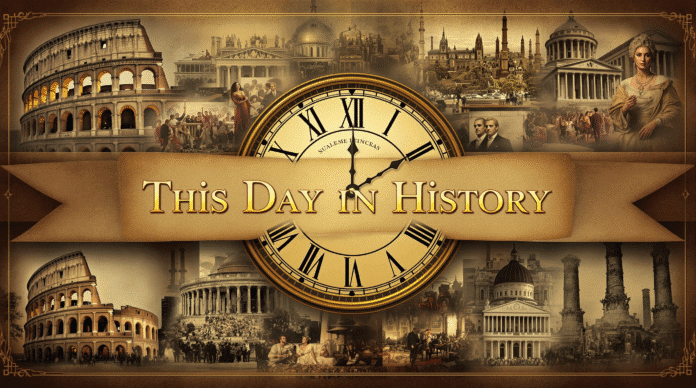This Day in History: June 13
Explore five powerful events that shaped the world on this day in history—June 13. From pioneering court rulings to music revolutions and space milestones, these moments span politics, culture, science, and civil rights.
1966 – Miranda v. Arizona Establishes “Miranda Rights”
In a landmark 5–4 decision, the U.S. Supreme Court ruled in Miranda v. Arizona that criminal suspects must be informed of their rights before being interrogated by police. This includes the right to remain silent and the right to an attorney. The ruling stemmed from Ernesto Miranda’s coerced confession, which led to a broader debate about Fifth Amendment protections.
Significance:
This decision fundamentally changed law enforcement procedures in the U.S. and became a cornerstone of American civil liberties. Today, “Miranda Rights” are widely known through media and police protocol, reinforcing protections against self-incrimination.
Interesting Fact:
Miranda himself was retried without the confession and convicted again. After his release, he sold Miranda Rights cards for cash.
323 BCE – Alexander the Great Dies in Babylon
One of history’s greatest military commanders, Alexander the Great, died at the age of 32 under mysterious circumstances in the palace of Nebuchadnezzar II in Babylon. His death led to the rapid fragmentation of the Macedonian Empire among his generals, sparking the Wars of the Diadochi.
Significance:
Alexander’s conquests shaped the ancient world, spreading Hellenistic culture across three continents. His death marked the end of a unified empire and the beginning of the Hellenistic Era, influencing language, science, and art for centuries.
Interesting Fact:
Legends say his body did not decay for several days, leading many to believe he was divine.
1971 – The New York Times Publishes the Pentagon Papers
Despite government threats, The New York Times began publishing the Pentagon Papers—a top-secret Department of Defense study detailing decades of U.S. political and military involvement in Vietnam. The leak exposed lies told to the public by several administrations.
Significance:
The publication intensified anti-war sentiment and sparked a major legal battle over press freedom (New York Times Co. v. United States). It affirmed the essential role of a free press in holding power accountable.
Interesting Fact:
Daniel Ellsberg, who leaked the documents, initially faced over 100 years in prison but had all charges dismissed due to government misconduct.
1983 – Pioneer 10 Becomes First Man-Made Object to Leave the Solar System
NASA’s Pioneer 10 officially exited the solar system, becoming the first spacecraft to travel beyond the orbit of the outermost planet. Launched in 1972, it transmitted data until 2003, journeying into deep space with a message for extraterrestrial life.
Significance:
Pioneer 10’s mission proved humanity’s ability to explore interstellar space. Its gold plaque—containing a map of Earth’s location and figures of a man and woman—is one of humanity’s first attempts at communicating with intelligent life beyond our planet.
Interesting Fact:
Even after it stopped transmitting, Pioneer 10 continued traveling at over 26,000 mph toward the star Aldebaran—where it will arrive in 2 million years.
1989 – Singer Taylor Swift Is Born
On June 13, 1989, Taylor Swift was born in Reading, Pennsylvania. She would go on to become one of the most influential musicians of her generation. Known for her lyrical storytelling, Swift broke records across country, pop, and indie genres, creating a cultural phenomenon dubbed the “Taylor Swift Effect.”
Significance:
Swift has redefined modern music marketing, spearheaded artists’ rights campaigns (notably over her masters), and cultivated one of the most loyal fan bases in history. Her ability to evolve across genres continues to shape the music industry.
Interesting Fact:
Swift considers 13 her lucky number, often hiding the number in performances and music videos—even being born on Friday the 13th!



